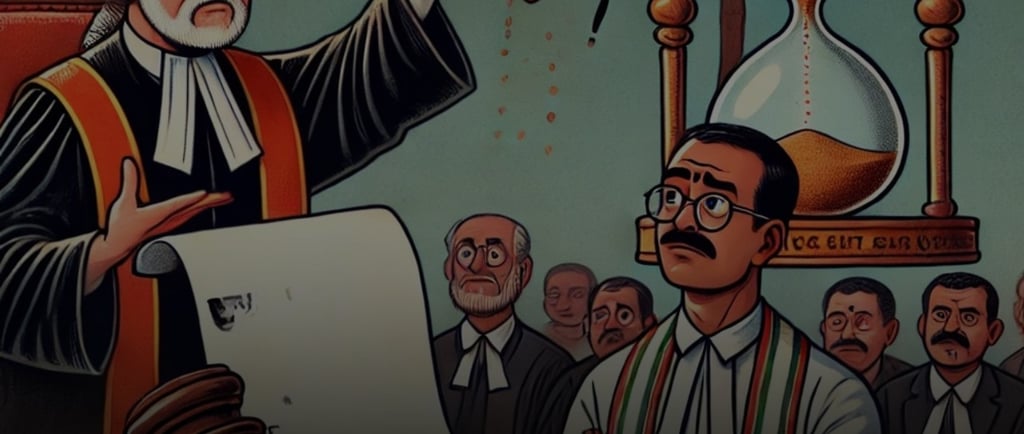SC Quashes Suit for Specific Performance in Land Dispute: Holds It Barred by Limitation
New Delhi, January 8, 2025: The Supreme Court of India, in a significant ruling, has quashed a suit for specific performance in a long-standing property dispute involving the Indian Evangelical Lutheran Church Trust Association and M/s. Sri Bala & Co., holding that the suit was barred by limitation.
2/28/20252 min read


A bench comprising Justices B.V. Nagarathna and Nongmeikapam Kotiswar Singh allowed the appeal filed by the Indian Evangelical Lutheran Church Trust Association against the Madras High Court's dismissal of their plea for rejection of the plaint under Order VII Rule 11(d) of the Code of Civil Procedure, 1908.
Background of the Dispute
The dispute centered around 5.05 acres of land in Kodaikanal, originally part of a larger 6.48-acre property purchased by American missionaries in 1912. The property, known as Loch End, was later transferred to the appellant through a trust agreement in 1975.
The controversy began in 1991 when an agreement was entered into between the appellant and the respondent, M/s. Sri Bala & Co., for the sale of the property. The total consideration was fixed at ₹3.02 crore, with an advance of ₹10 lakh paid at the time of execution. However, due to subsequent litigation involving tenants occupying parts of the property, the sale was not completed.
M/s. Sri Bala & Co. filed a suit for specific performance in 1993 before the Subordinate Judge, Dindigul, but the plaint was rejected in 1998 due to non-payment of the required court fees. Subsequently, in 2007, the respondent filed a fresh suit for specific performance, citing an extension letter from the appellant’s secretary as justification for the delay.
Key Legal Issues
The central issue before the Supreme Court was whether the second suit, filed in 2007, was barred by limitation. The appellant argued that even if the limitation period was extended until 1998 (when the first suit was dismissed), the respondent should have filed the second suit within three years, i.e., by 2001. The delay of six additional years rendered the suit time-barred under Article 113 of the Limitation Act, 1963.
Conversely, the respondent claimed that pending litigations regarding the property, along with an extension letter dated July 15, 1991, justified the delay.
SC’s Observations & Ruling
The Court held that the second suit was clearly time-barred. It ruled that once the limitation period begins, it continues to run unless halted by an express legal provision. It noted that the respondent had failed to provide sufficient justification for the delay and rejected the claim that ongoing litigation suspended the limitation period.
The judgment emphasized that:
The rejection of a plaint under Order VII Rule 11 does not preclude the filing of a fresh suit under Order VII Rule 13.
However, any such suit must be within the prescribed limitation period.
In this case, the second suit was filed beyond the permissible period of three years, making it legally untenable.
Quashing the High Court’s order, the Supreme Court set aside the trial court’s decision and allowed the appellant’s plea for rejection of the plaint.
Implications of the Ruling
This judgment reaffirms the principle that parties seeking specific performance of a contract must act within the prescribed limitation period. It also clarifies that merely citing pending litigation is insufficient to extend statutory deadlines unless explicitly provided by law.
The verdict is expected to have broader implications for property disputes involving trusts and religious institutions, particularly where contractual obligations are delayed due to legal complications.
